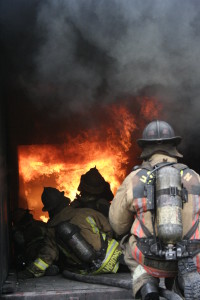Fairfax Arson Charge 18.2-87 Intentionally Burning Woods
January 11, 2021 by Jean Humbrecht


Most Fairfax arson charges are felonies. Va. Code §18.2-87 is one of the only Virginia arson charges that is classified as a misdemeanor. The other misdemeanor arson charges are found in Va. Code §18.2-88 and Va. Code 18.2-81. §18.2-88 is a Class 4 misdemeanor. Va. Code §18.2-81 can be charged as a Class 4 felony or a Class 1 misdemeanor.
Arson is the malicious burning or destruction of property by use of fire or an explosive device. §18.2-87 prohibits intentionally setting fire to anything capable of spreading fire on land. This arson charge also punishes intentionally allowing that fire to escape the land of another so that the other person’s property is damaged or jeopardized.
Virginia law presumes that the cause of a fire was an accident. This makes the burden very high for the Commonwealth to prove any Fairfax arson charge.
Proof of Arson Charge in Fairfax
To convict on a Fairfax arson charge, the Commonwealth must prove:
- an incendiary act (burning)
- the accused is the person who caused the incendiary act, and
- criminal intent.
To prove criminal intent under §18.2-87, the commonwealth must prove that the fire was intentionally set AND that the offender allowed the fire to spread on to another’s land.
Penalties for a Fairfax Arson Charge
§18.2-87 is a Class 1 misdemeanor. This arson charge is punished with up to 12 months in jail, a fine up to $2500, or both. The offender may also be required to pay the expenses incurred by the fire department in putting out the fire.
The Statute
§18.2-87 Setting woods, etc., on fire intentionally whereby another is damaged or jeopardized.
“Any person who intentionally sets or procures another to set fire to any woods, brush, leaves, grass, straw, or any other inflammable substance capable of spreading fire, and who intentionally allows the fire to escape to lands not his own, whereby the property of another is damaged or jeopardized, shall be guilty of a Class 1 misdemeanor, and shall be liable for the full amount of all expenses incurred in fighting the fire.”
Other Fairfax Arson Charges
§18.2-77 prohibits the malicious burning or destruction of a dwelling house. This Fairfax arson charge is punished by up to life in prison. It can also be punished with a fine up to $100,000. For more information on this Fairfax arson charge, click here.
§18.2-79 punishes the intentional burning or destruction of a meeting house. For more information on this Fairfax arson charge, click here.
§18.2-80 discusses malicious burning or destruction of any structure not covered in any of the other arson statutes. It is punished by up to 20 years in prison. This arson charge an also be punished with a fine up to $100,000. For more information on this Fairfax arson charge, click here.
§18.2-81 is the Fairfax arson charge related to personal property. If the property destroyed was more than $200 in value, it is a Class 4 felony. If the damage was less, it is a Class 1 misdemeanor. For more information on this Fairfax arson charge, click here.
§18.2-82 results from an offender starting a fire while in a structure with intent to commit a felony. It is punished by 2-10 years in prison, a fine up to $100,000, or both. For more information on this arson charge, click here.
§18.2-86 prohibits maliciously setting fire to anything capable of spreading fire on land. This Fairfax arson charge is punished by 1-5 years in prison. It can also be punished by 12 months in jail, a fine up to $2500, or both. Click here for more information on this Fairfax arson charge.
§18.2-88 prohibits carelessly damaging property by fire. This Fairfax arson charge is a Class 4 misdemeanor. The punishment for this arson charge is a fine up to $250. For more information on this Fairfax arson charge, click here.
***DISCLAIMER: THE MATERIAL AND INFORMATION CONTAINED IN THIS POST, ON ANY PAGES ON THIS WEBSITE, AND ON ANY PAGES LINKED FROM THESE PAGES, ARE FOR GENERAL INFORMATION ONLY AND NOT LEGAL ADVICE. YOU SHOULD CONSULT A LICENSED ATTORNEY IN YOUR JURISDICTION BEFORE RELYING ON ANY OF THE INFORMATION





